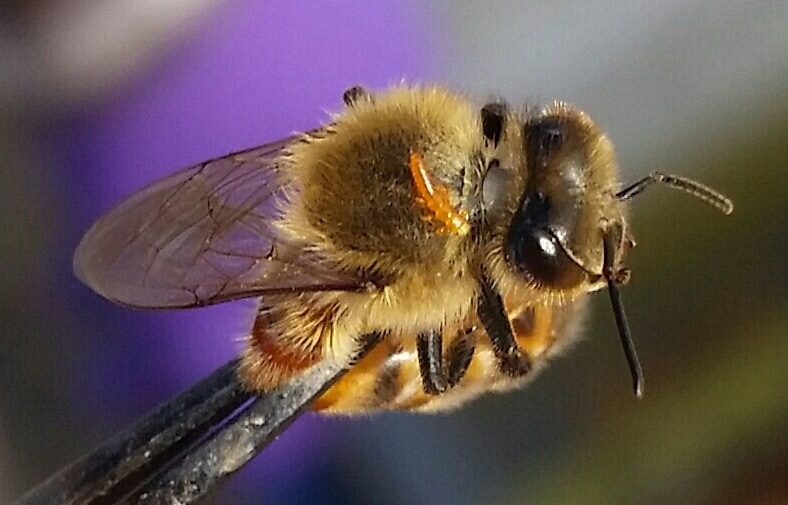Tech-Transfer Teams provide third-party documentation of emergency events, such as acute pesticide poisoning, for beekeepers who request this service. The Northwest team responds to at least two emergency calls every year. BIP Tech Teams provide a complete colony health assessment during these calls to help find the underlying issue or at least rule out other possible contributing causes of colony loss. This includes sampling for Varroa mites, Nosema, tracheal mites, and viruses as well as pesticide analysis of dead bees, bee bread, fresh pollen, wax and honey. Sampling dead or dying colonies is difficult for everyone involved but knowing that there is a resource that…
Author: Ellen Topitzhofer
Blister Beetle on Honey Bees
As a Technical Transfer Team member, I have a unique perspective of beekeeping. We get to see operations of all different sizes and styles, and we see bees of varying degrees of health, strength, and occasionally odd situations. One day this fall, we noticed a particularly odd occurrence: strange orange larvae on the thorax of some bees. We took samples back to the lab and carefully inspected the larvae under a microscope. Using a dichotomous key, I was able to name the organisms down to genus. They were first instar larvae of the blister beetle (Meloe sp.). Now what on earth is a blister…
